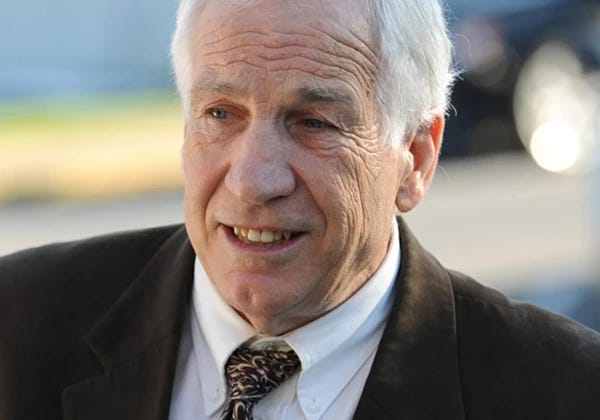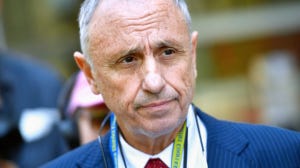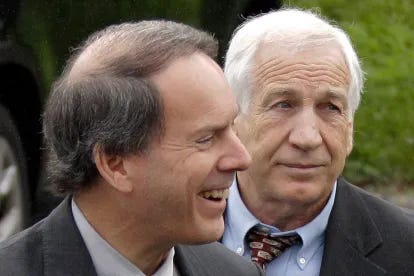Questioning Memory: Frank Parlato Revisits the Jerry Sandusky Case
Parlato Probes the Controversial Use of Repressed Recovered Memories in Legal Proceedings

By Richard Luthmann
Investigative journalist Frank Parlato has reopened discussions surrounding the Jerry Sandusky case, focusing on the controversial use of repressed recovered memories (RRM) in legal proceedings. Sandusky, a former Penn State assistant football coach, was convicted in 2012 for sexually abusing nine boys, based mainly on allegations of recovered memories of abuse.
Now 79 and having spent over 11 years in prison, Parlato's investigation raises questions about the reliability of these memories and the legal processes involved that put Sandusky behind bars. The latest article in Parlato’s deep dive is Changing Memories: The Impact of Repressed Recovered Memories in the Sandusky Case.
Changing Memories: The Impact of Repressed Recovered Memories in the Sandusky Case
Initial Allegations and Trial Outcome
The case against Sandusky began with allegations from two men, Aaron Fisher and Brett Houtz, who claimed sexual abuse. Four others accused Sandusky of 'grooming,' and two more alleged sexual assault in time for the trial.
Notably, none of the accusers disclosed abuse at the time it allegedly occurred. The Acting Attorney General Linda Kelly noted the difficulty for the victims in "unearthing buried memories" of the abuse.
Financial Implications and Legal Strategy
The case took a significant turn when all victims, represented by civil lawyers, understood that Penn State would be liable to pay if Sandusky was convicted. Following his conviction, Penn State paid over $100 million to the victims.
The awards ranged from $1.5 million to $20 million per victim, with notable payouts to Aaron Fisher ($7.5 million) and Allan Myers ($6.9 million), among others.
The Role of Repressed Recovered Memories
The Sandusky case heavily relied on the concept of RRM, where traumatic memories are supposedly buried and later recovered through psychotherapy. For example, Aaron Fisher took over two years of therapy to remember the abuse, leading to a substantial financial settlement from Penn State.
Influence of Legal Counsel and Therapy
Several victims, including Jason Simcisko and Dustin Struble, initially did not recall abuse but later reported 'recovered' memories after meetings with attorneys and undergoing therapy. This pattern raises questions about the influence of legal counsel and therapists on memory recall.
Defense Attorney's Role
Sandusky's defense attorney, Joe Amendola, waived his right to a preliminary hearing and did not challenge the RRM evidence, which some consider a crucial oversight. Amendola also refrained from demanding complete psychotherapy records for the witnesses, potentially missing key evidence about the evolution of their memories.
Legal Decisions and Consequences
The case outcome, where the victims' "new memories" of abuse translated into million-dollar settlements, spotlights the potential financial incentives in such legal battles. Meanwhile, Sandusky remains incarcerated, with the validity of the evidence used for his conviction now under question.
Acknowledgments
Parlato acknowledges his reexamination of the Sandusky case draws extensively on the work of several researchers, authors, and experts, including Dr. Frederick Crews, John Ziegler, Ralph Cipriano, and Mark Pendergrast. Their collective efforts have highlighted the complexities and potential flaws in the case against Sandusky, particularly concerning using repressed, recovered memories as reliable evidence in legal proceedings.
Frank Parlato’s article:









It’s BIGGER than this. And it’s bigger than Sandusky.
I don’t know about these particular victims, but it is extremely disturbing to me to even entertain the DEbunked ‘false memory syndrome.’ This is a tactic of abusers.